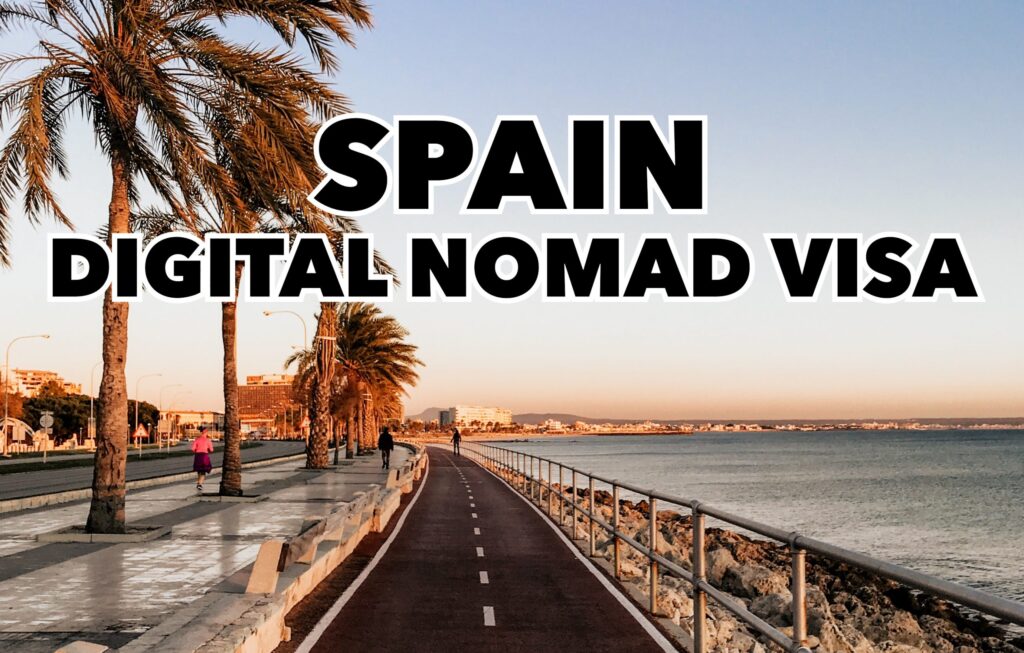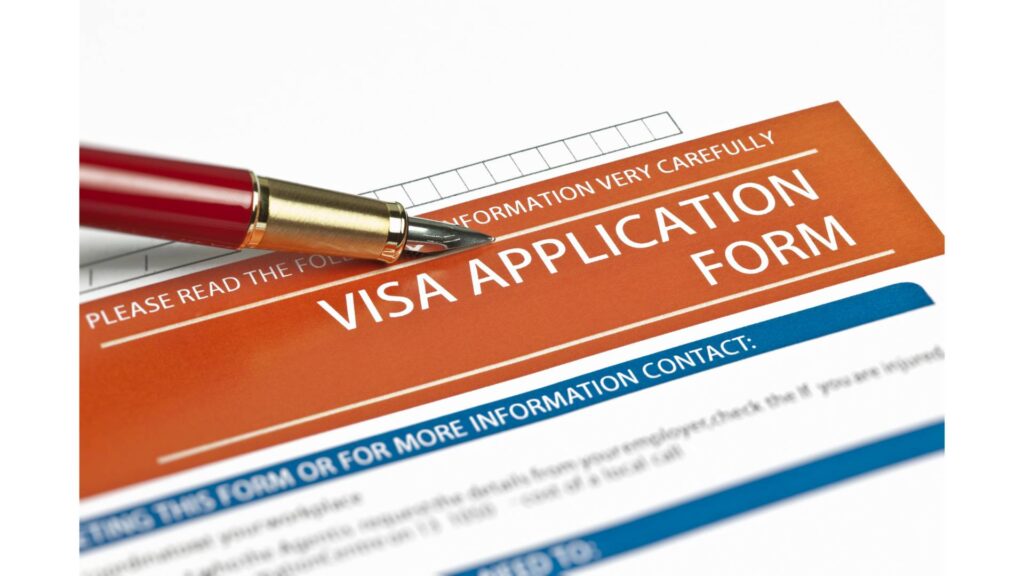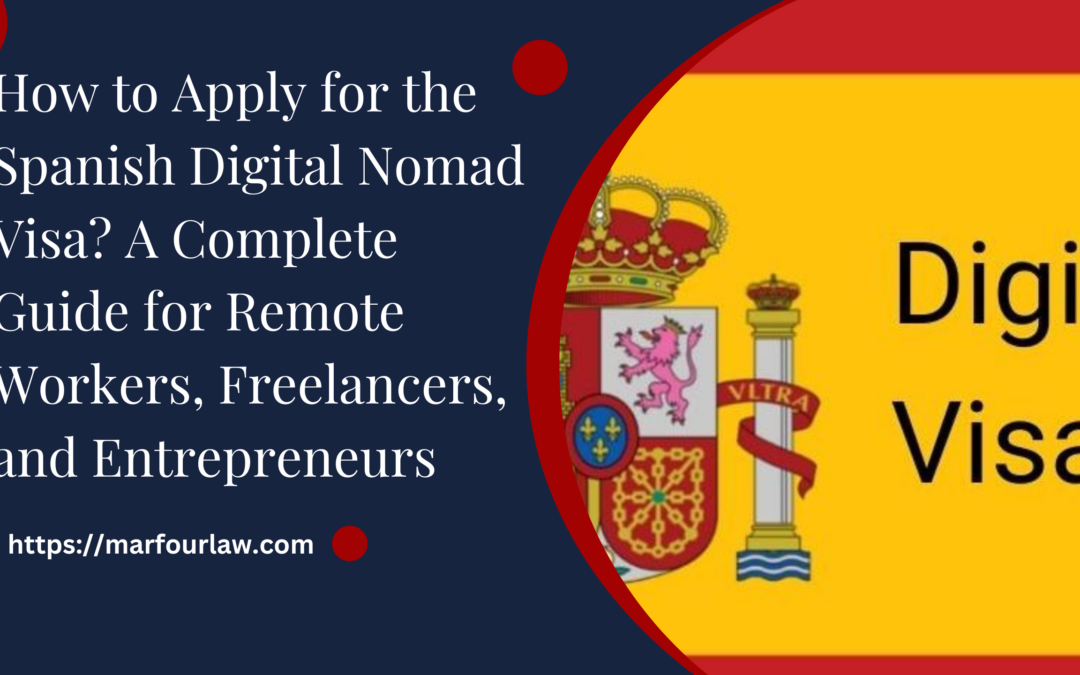The Spanish Digital Nomad Visa is a fantastic opportunity for remote workers, freelancers, and business owners to live and work in Spain legally. This visa is not only limited to remote employees; it also extends to self-employed individuals, entrepreneurs, and business owners with international operations. If you want to enjoy Spain’s vibrant culture, sunny weather, and affordable lifestyle while maintaining your work, this visa offers the perfect solution. In this guide, we’ll walk you through everything you need to know about eligibility, requirements, the application process, taxes, and family arrangements.
What is the Spanish Digital Nomad Visa and Who is Eligible?
The Spanish Digital Nomad Visa is a game-changer for remote workers looking to experience life in Spain. This visa lets you live and work in Spain while being employed by a company based outside of the country. Picture this: waking up to beautiful views, enjoying delicious tapas, and immersing yourself in a vibrant culture while you keep your job. Sounds enticing, right?
Who is Eligible for the Digital Nomad Visa
Now that you’re excited about the benefits, let’s talk about who can apply. The eligibility criteria are designed to attract skilled professionals who can contribute to the local economy while working remotely.
- Non-EU Citizens: First and foremost, this visa is intended for non-EU citizens. If you’re from a country outside the European Union and want to live and work in Spain, this is your chance.
- Remote Workers or Freelancers: You must be a remote worker or freelancer employed by a non-Spanish company. If your job allows you to work from anywhere, you’re likely eligible. Whether you’re a graphic designer, software developer, or consultant, as long as your work can be done remotely, you can apply.
- Minimum Income Requirement: The minimum income requirement for the Spanish Digital Nomad Visa is set at €2,268 per month for the main applicant. Additionally, if you have a second applicant (such as a spouse or dependent), the income requirement increases to €850.50 per month for that individual. For each additional dependent, the income requirement is €283.40 per month. This ensures that applicants have sufficient financial resources to support themselves and their family members while living in Spain.
Application Process for the Digital Nomad Visa
So, you meet the eligibility criteria. What’s next? The application process involves several steps, but don’t worry; it’s manageable.
- Gather Required Documents: Start by gathering all necessary documents. You’ll need proof of employment, a valid passport, and evidence of your income. This includes bank statements and pay stubs that confirm you meet the financial requirements.
- Submit Your Application: Next, you’ll submit your application either to the Spanish consulate or embassy in your home country or directly from within Spain. If you’re applying from Spain, an English-speaking immigration lawyer can also represent you and submit your application directly to the Unidad de Grandes Empresas (UGE), streamlining the process. Ensure all documents are complete and meet the specific requirements, as a well-prepared application can make a significant difference in the approval timeline.
- Wait for Approval: Once your application is submitted, the waiting game begins. The processing time can vary, so patience is key. After approval, you’ll be issued a visa that allows you to enter Spain and start your adventure.
- Duration and Renewal of the Visa: The Spanish digital nomad visa’s validity period depends on where it is initially issued. If you apply from within Spain, the visa is granted for a period of three years. In contrast, if you apply through a Spanish consulate abroad, the initial visa is only valid for one year. When it comes to renewal, the length of extension also depends on the original duration: a three-year visa can be renewed for an additional two years, while a one-year visa can be renewed for three years. This structure allows applicants flexibility based on their location and initial visa type, ensuring continuity for those who wish to extend their stay as digital nomads in Spain.
What Are The Requirements for the Digital Nomad Visa Spain?
Have you ever thought about trading your office view for a Spanish beach or a vibrant city street? With the Spanish Digital Nomad Visa, you can make that dream a reality. This visa is designed for remote workers and digital nomads, allowing them to live in Spain while continuing their work for a non-Spanish company. If you’re considering this exciting opportunity, let’s break down the requirements you’ll need to meet.rkers and digital nomads, allowing them to live in Spain while continuing their work for a non-Spanish company. If you’re considering this exciting opportunity, let’s break down the requirements you’ll need to meet.

Basic Eligibility Requirements
The first step in your journey is understanding who qualifies for the Digital Nomad Visa. If you’re a non-EU citizen, you’re eligible to apply, provided you have a valid work contract with a company outside of Spain or proof that you run your own freelance business. The primary focus is that your work must be remote and not tied to a Spanish employer. So, if you’re ready to embrace a new lifestyle, this visa could be just what you need!
Proof of Employment or Business Ownership
A crucial requirement for the Digital Nomad Visa is demonstrating your employment status. You’ll need to provide a work contract with a non-Spanish company or documents that prove your freelance work. If you own a business, make sure to gather relevant documentation, such as your business registration and tax filings. Freelancers should compile contracts, client testimonials, and invoices to show that your work can thrive from anywhere. This evidence will be essential for your application.
Minimum Income Requirements
Let’s talk about finances, as they are essential for your Spanish Digital Nomad Visa application. The current income requirement is €2268 per month for the main applicant, €850.50 per month for a second applicant, and €283.40 per month for each additional applicant. These financial thresholds ensure you can comfortably support yourself and any dependents while residing in Spain. Make sure your financial documentation clearly reflects these amounts, as meeting this requirement is a critical part of the application process.
Health Insurance Coverage
When relocating to a new country, your health should always be a top priority. The Spanish government requires you to have health insurance coverage that is valid in Spain. This can be through a private insurance plan that meets Spanish standards or coverage from your home country that is adequate for your needs while living in Spain. Be prepared to present documentation showing proof of this coverage with your application.
Application Process and Documentation
Once you’ve gathered all the necessary documents, the application process begins. Complete the appropriate visa application forms and submit them, along with your supporting documents, to the nearest Spanish consulate or embassy. If you’re already in Spain, you have the option to have your immigration lawyer submit your digital nomad visa application directly to the Unidad de Grandes Empresas (UGE) on your behalf, streamlining the process. Ensure all paperwork is complete and accurate to avoid delays, and be prepared for a potential interview, as consulates may request one to discuss your application in detail.
Applying for the Spanish Digital Nomad Visa can be an exciting step towards a new adventure. By ensuring you meet the eligibility requirements, provide the necessary documentation, and maintain the financial stability expected by the Spanish government, you’ll be well on your way to calling Spain your new home. If you have questions about the application process or need assistance, Marfour International Law Firm is here to help you every step of the way. Let’s make your dream of living and working in Spain a reality!
How to Get a Nomad Visa in Spain? Step-by-Step Application Process
If you’re dreaming of working remotely while soaking up the vibrant culture and stunning landscapes of Spain, the Nomad Visa could be your ticket. This visa allows you to live in Spain while continuing to work for a non-Spanish company. Let’s dive into the step-by-step application process to help you turn that dream into reality.

Determine Your Eligibility
Before you start filling out applications, it’s essential to check if you meet the criteria for the Nomad Visa. Generally, you need to be a non-EU citizen, have a valid job with a foreign company, and demonstrate a stable income. Also, consider your professional background and whether it aligns with Spain’s requirements. Think about it: if you have skills in tech, finance, or creative fields, you may find the application process smoother.
Gather Required Documents
Next, you’ll need to collect several documents. This includes a valid passport, proof of employment (like a contract from your non-Spanish employer), proof of income (bank statements or salary slips), and a criminal background check from your home country. You might also need health insurance that covers you in Spain. It’s like packing for a trip; you want to make sure you have everything you need to avoid any last-minute surprises.
Complete the Application Form
Now that you have your documents ready, it’s time to fill out the application form. You can usually find this on the official website of the Spanish consulate or embassy in your country. Take your time with this step. Fill out all the fields accurately, as mistakes can lead to delays or rejections. Imagine this form as your first impression; you want to make it count!
Schedule an Appointment
After submitting your application form, you will likely need to schedule an appointment at the Spanish consulate or embassy. This is where you’ll submit your documents and possibly attend an interview. Make sure to prepare for this step by reviewing your application and knowing why you want the Nomad Visa. It’s your chance to show your enthusiasm for living in Spain.
Attend Your Interview
During your appointment, you’ll meet with a consular officer who will review your application and documents. You may attend this interview in person or, in some cases, submit your application online if that option is available. Be prepared to discuss your work, income, and future plans in Spain. This interview is more than a formality—it’s a chance to convey your enthusiasm for living in Spain, so approach it as a friendly conversation. Stay relaxed, and share your excitement about experiencing Spanish culture.
Await the Decision
Once you’ve completed your appointment, all that’s left to do is wait for the decision. The processing time can vary, so be patient. In the meantime, you can start planning your move and thinking about where you want to live in Spain. It’s like waiting for a big reveal—you’re one step closer to your new life!
Receive Your Visa
If your application is approved, congratulations! You’ll receive your Nomad Visa, allowing you to live and work in Spain. Make sure to double-check the details on your visa, including the duration of stay and any conditions attached. It’s similar to getting a ticket to a concert; you want to ensure everything is perfect before the big day.
Settle Into Your New Life
Now that you have your Nomad Visa, it’s time to move to Spain and start your adventure. Once you arrive, you’ll need to register your residence, get a Spanish tax number (NIE), and set up a bank account. Embrace the new experiences awaiting you—from exploring local cuisine to connecting with fellow nomads. Think of this as the beginning of an exciting chapter in your life.
Why Choose Marfour International Law Firm?
If you feel overwhelmed by the visa process or have questions along the way, don’t hesitate to reach out to Marfour International Law Firm. Our team of experts is here to guide you through each step, ensuring you have all the support you need. We specialize in immigration matters and can help you navigate the complexities of obtaining your Nomad Visa in Spain. After all, you shouldn’t have to go through this journey alone—let us help you make it seamless.
What is the Duration of the Digital Nomad Visa and Can it Be Renewed?
If you’re considering the Digital Nomad Visa for Spain, you might be wondering about its duration and the options for renewal. This visa offers a fantastic opportunity to live in Spain while working remotely for a foreign employer. Let’s break down how long this visa lasts and what you need to know about renewing it.

Duration of the Digital Nomad Visa
The Spanish digital nomad visa is initially valid for three years if you apply from within Spain. If you apply through a Spanish consulate abroad, however, the visa is granted for a period of one year. When it comes to renewals, the duration depends on your initial visa: a three-year visa can be renewed for an additional two years, while a one-year visa can be renewed for three years. This flexible system allows digital nomads to extend their stay based on the initial application location and visa type.
Renewal Process
As your initial one-year period approaches its end, you may find yourself wanting to extend your stay. The good news is that the Digital Nomad Visa can be renewed. The renewal process allows you to apply for an extension, typically for an additional two years. This means that if you’ve enjoyed your time in Spain and want to continue your remote work lifestyle, you can stay for a more extended period.
Requirements for Renewal
When it’s time to renew your visa, you’ll need to meet several conditions, similar to when you first applied. Here are the key factors to consider:
- Proof of Continued Employment: You must show that you’re still employed by a non-Spanish company or have a steady stream of freelance work. This demonstrates that you continue to meet the visa’s primary requirement of remote work.
- Income Stability: Provide updated financial documentation to prove that you still meet the income thresholds established when you first applied for the visa. This could include bank statements or recent salary slips.
- Health Insurance: Ensure your health insurance is valid and covers your time in Spain. This is crucial for both your safety and compliance with the visa regulations.
What Happens After Renewal?
If your renewal application is successful, the extension period will depend on the duration of your initial visa. If your original visa was valid for three years, the renewal will extend your stay by an additional two years. For those whose initial visa was valid for one year, the renewal period will be three years. After this renewal, there may be options for further extensions or pathways to permanent residency, depending on your circumstances. This system provides flexibility, making Spain an appealing long-term destination for digital nomads.
Why Choose Marfour International Law Firm
Navigating the visa application and renewal processes can be complex, but you don’t have to do it alone. At Marfour International Law Firm, our experienced team is dedicated to helping you with every step, from the initial application to the renewal process. We understand the unique challenges that digital nomads face, and we’re here to provide tailored guidance to ensure you meet all requirements smoothly.
In summary, the Digital Nomad Visa allows you to stay in Spain for up to one year initially, with the possibility of renewing for two additional years. As the landscape of remote work continues to grow, this visa can be a perfect fit for those looking to embrace a nomadic lifestyle in a beautiful country. Contact us at Marfour International Law Firm to learn more about how we can assist you in your journey to living and working in Spain. Your dream lifestyle is just a visa away!
Bringing Your Family with the Spanish Digital Nomad Visa
If you’re eyeing the Spanish Digital Nomad Visa as your ticket to living and working in Spain, you might also be thinking about how to bring your family along. The good news is that the Digital Nomad Visa offers provisions for family members, making it easier to embark on this exciting journey together. Let’s explore how you can bring your loved ones with you and what you need to know about the process.ring your loved ones with you and what you need to know about the process.

Eligibility for Family Members
When you apply for the Spanish Digital Nomad Visa, you can include your immediate family members in your application. This typically includes your spouse or partner and dependent children. The key here is that your family members must depend on you financially. If you can prove that you have the means to support them during your stay in Spain, you’re on the right track to bringing your family along.
Application Process for Family Members
To include your family in your Digital Nomad Visa application, you’ll need to follow specific steps:
- Documentation: Each family member will need to provide necessary documents, including passports, birth certificates for children, and marriage or partnership certificates for spouses. These documents help establish your relationship and their dependent status.
- Proof of Financial Stability: You’ll need to show that you can financially support your family while living in Spain. This often includes bank statements or proof of income. Imagine it like proving you can support your family on a road trip—you want to show you have enough fuel for the journey!
- Health Insurance: Just like with your own visa application, your family members must have valid health insurance that covers them while in Spain. This is crucial for both their safety and compliance with local regulations.
- Include Family Members in Your Application: When you submit your Digital Nomad Visa application, ensure that you include the necessary documentation for your family members. They can be part of your application as dependents, which can simplify the process.
Duration of Stay for Family Members
Once your family members are approved for the Digital Nomad Visa, their stay will typically align with yours. This means they can enjoy the same initial one-year period, with the possibility of renewing for an additional two years, just like you. This is great news for families looking to immerse themselves in Spanish culture and lifestyle together.
Education for Children
If you’re bringing children along, you might be wondering about their education. Spain has a robust education system, and you can enroll your children in public or private schools. Public schools in Spain typically offer free education, but you’ll need to check the language requirements, as classes may be conducted in Spanish. Alternatively, many international schools provide curricula in English, making the transition smoother for expatriate families.
How Marfour International Law Firm Helps You?
Navigating the intricacies of applying for a visa for yourself and your family can be a daunting task. At Marfour International Law Firm, we specialize in immigration matters and are here to help you through every step of the process. Our experienced team can assist you in gathering the necessary documentation, ensuring that your application is comprehensive and meets all requirements.
In conclusion, the Spanish Digital Nomad Visa is not only an opportunity for you to work remotely in a beautiful country, but it also allows you to bring your family along for the adventure. With the right preparation and guidance, you can enjoy a fulfilling life in Spain together. If you have any questions about the application process or need assistance, don’t hesitate to reach out to Marfour International Law Firm. Let’s make your family’s dream of living in Spain a reality!
Tax Obligations for Digital Nomads in Spain
As a digital nomad planning to live and work in Spain, understanding your tax obligations is crucial. While the idea of working from sunny beaches or vibrant cities sounds appealing, navigating the tax landscape can be a bit tricky. Here’s what you need to know about tax obligations for digital nomads in Spain, and how Marfour International Law Firm can assist you in this journey.
Tax Residency Status
One of the first things to consider is your residency status in Spain. You’ll be considered a tax resident if you meet any of the following criteria:
- You spend more than 183 days in Spain within a calendar year.
- Your main business or economic interests are in Spain.
- Your spouse or dependent children are tax residents in Spain.
If you fall into any of these categories, you’ll need to pay taxes on your worldwide income. This means that income earned from your remote job, regardless of where it is sourced, will be subject to Spanish taxation.
Types of Taxes Digital Nomads May Encounter
- Income Tax: If you’re a tax resident, you’ll be liable for personal income tax (IRPF) in Spain. The rates are progressive, ranging from 19% to 47%, depending on your income level. Understanding this tax bracket is essential for budgeting and financial planning.
- Value Added Tax (VAT): If you provide services or goods to clients in Spain, you may also need to charge VAT, which is generally 21%. However, there are exemptions for certain services or goods. It’s vital to clarify your obligations based on the nature of your work.
- Social Security Contributions: If you are self-employed, you might need to register with the Spanish Social Security system. This would require making monthly contributions, which provide access to public healthcare and social services. If you work for a foreign company, you may not be subject to these contributions, but it’s essential to check whether you’re eligible for a bilateral agreement between Spain and your home country.
Filing Your Taxes
Tax year in Spain runs from January 1 to December 31, and you must file your income tax return between April 6 and June 30 of the following year. If you’re a tax resident, you’ll need to report your worldwide income. This includes salaries, freelance earnings, and even income from investments.
For those who are non-residents, you only pay taxes on income sourced from Spain, and the process may differ slightly. It’s advisable to consult with a tax professional to ensure you’re complying with all requirements.
Double Taxation Treaties
Spain has double taxation treaties with numerous countries to prevent the same income from being taxed twice. If you’re a tax resident of a country that has a treaty with Spain, you may be eligible for tax relief. This can be beneficial for digital nomads who earn income from both Spain and their home country. Consulting with an expert can help you understand how these treaties apply to your specific situation.
Navigating the tax obligations as a digital nomad in Spain can be complex, but you don’t have to tackle it alone. At Marfour International Law Firm, our team of experts specializes in immigration and tax matters. We provide tailored advice to help you understand your tax responsibilities and ensure compliance with Spanish laws.
Whether you need assistance with filing your taxes, understanding your residency status, or exploring options for double taxation relief, we’re here to support you every step of the way. Our goal is to make your transition to life in Spain as smooth as possible so you can focus on enjoying your new adventure.
In summary, as a digital nomad in Spain, being aware of your tax obligations is essential for a hassle-free experience. By understanding your residency status, the types of taxes you may encounter, and your filing responsibilities, you can better prepare for your life in Spain. If you have any questions or need assistance, contact Marfour International Law Firm. We’re here to help you navigate the intricacies of living and working in Spain while ensuring you meet all your tax obligations. Let’s make your nomadic journey a success!
Mistakes to Avoid When Applying for the Spanish Digital Nomad Visa
Applying for the Spanish Digital Nomad Visa is an exciting step toward living and working in a vibrant country. However, the application process can be complex, and there are several common pitfalls that applicants can encounter. To help you navigate this journey successfully, we’ve compiled a list of mistakes to avoid when applying for the Spanish Digital Nomad Visa.igate this journey successfully, we’ve compiled a list of mistakes to avoid when applying for the Spanish Digital Nomad Visa.

Not Understanding Eligibility Criteria
One of the biggest mistakes is not fully grasping the eligibility criteria for the Digital Nomad Visa. This visa is specifically designed for remote workers who are employed by non-Spanish companies or are self-employed with clients outside of Spain. If you don’t meet these requirements, your application may be denied. Take the time to review the criteria carefully to ensure you qualify before you begin the application process.
Incomplete Documentation
Submitting incomplete documentation is a common error that can lead to delays or outright rejection of your application. Each application requires a specific set of documents, including proof of employment, financial statements, health insurance, and criminal background checks. Make a checklist of all required documents and ensure that everything is complete and accurate. This will help streamline your application and reduce the chances of complications.
Underestimating Financial Requirements
The Digital Nomad Visa has specific financial requirements that applicants must meet. You’ll need to prove that you have sufficient funds to support yourself and any dependents during your stay in Spain. This usually means demonstrating a steady income or substantial savings. Some applicants mistakenly believe they can get by with less than the required amount, which can lead to rejection. Ensure you have the necessary financial documentation to back your claims.
Ignoring Health Insurance Requirements
Having valid health insurance coverage is crucial for your Digital Nomad Visa application. Applicants sometimes overlook this requirement or choose inadequate coverage. Your health insurance should provide comprehensive coverage for medical expenses while you are in Spain. If your policy does not meet the minimum requirements, your application may be denied. Make sure to research and select a plan that complies with Spanish regulations.
Delaying the Application Process
Another mistake many applicants make is waiting too long to submit their applications. The process can take several weeks, and it’s essential to plan accordingly. If you delay, you might miss out on your desired move date or experience unnecessary stress. Start the application process as early as possible, allowing ample time to gather documents and address any issues that may arise.
Neglecting to Seek Professional Advice
Many applicants attempt to navigate the process independently without seeking professional help. While it’s possible to apply on your own, enlisting the assistance of an immigration lawyer or consultancy can be incredibly beneficial. They can provide tailored advice, help you avoid common mistakes, and ensure that your application is as strong as possible. Not seeking professional guidance can result in costly errors that may jeopardize your visa application.
Failing to Stay Informed About Changes
Immigration policies and regulations can change, and applicants sometimes fail to stay updated on the latest information regarding the Digital Nomad Visa. Before applying, research the current regulations and requirements to ensure you are working with the most accurate information. Ignoring updates could lead to using outdated procedures or documentation, which can impact your application.
In conclusion, avoiding these mistakes can significantly improve your chances of a successful application for the Spanish Digital Nomad Visa. By understanding the eligibility criteria, preparing thorough documentation, meeting financial and health insurance requirements, and seeking professional help, you can streamline your journey to living and working in Spain. If you have any questions or need assistance, don’t hesitate to contact Marfour International Law Firm. We’re here to help you every step of the way on your exciting new adventure!
FAQs
Can I apply for the Spanish digital nomad visa if I’m self-employed?
Yes, the visa is open to freelancers, entrepreneurs, and business owners, as long as your income comes primarily from clients or operations outside Spain.
Can I apply while in Spain on a tourist visa?
Yes, you can initiate the application process from within Spain. However, ensure you start early to avoid overstaying your tourist visa.
What is the minimum income requirement for the Spanish digital nomad visa?
You must prove a monthly income of at least €2,268 for the main applicant. If bringing dependents, you’ll need to show an additional €850.50 per month for the second applicant and €283.40 per month for each additional dependent.
How long does it take to process the digital nomad visa application?
Processing times for the Spanish digital nomad visa typically take 10 working days if the application is submitted from within Spain. However, if the application is made from abroad through a Spanish consulate, it may take up to 20 working days. It’s recommended to apply well in advance to avoid any potential delays.
Can I work for a Spanish company with this visa?
No, the digital nomad visa only permits work for companies or clients outside Spain. Employment with local Spanish businesses is not allowed.
Is the digital nomad visa renewable?
Yes, the Spanish digital nomad visa is renewable. If the previous visa was valid for three years, it can be renewed for an additional two years. If the previous visa was valid for one year, it can be renewed for three years. After the renewal period, you may qualify for permanent residency if you meet the eligibility criteria.
Conclusion
The Spanish Digital Nomad Visa provides an excellent opportunity for remote workers, freelancers, entrepreneurs, and self-employed individuals to live and work in Spain. With access to a high quality of life, affordable living costs, and rich culture, Spain has become a top destination for digital nomads. Whether you plan to stay for one year or aim for long-term residency, this visa offers flexibility and benefits that make the process worthwhile.
If you need assistance with your application or have questions about the requirements, reach out to Marfour International Law Firm. Our team is here to guide you through every step and help you make Spain your new home.

